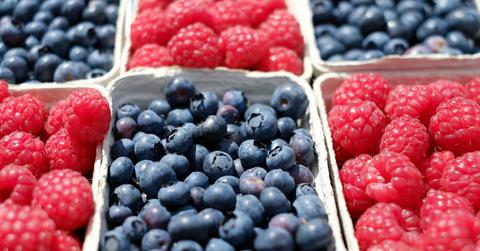Closed-Loop Farms Curb Emissions With Modular Greenhouses
A new startup seeks to change the way we eat by removing the need to transport food altogether. Instead of trucking farm-fresh produce from miles away to farmers markets in city centers, EkoFARMER brings modular greenhouses directly to you.
Updated May 26 2019, 3:50 p.m. ET
Imagine if, instead of restaurants or markets buying produce from farms, each eatery had its own mini-farm to pick from. That’s the vision of EkoFARMER, a new startup seeking to change the way we eat by removing the need to transport food altogether. Instead of trucking farm-fresh produce from miles away to farmers markets in city centers, EkoFARMER is bringing modular greenhouses directly into the metropolis. In an EkoFARMER future, everyone can have their very own tiny homestead to supply food for their business, family, neighborhood or office.
The closed-loop farming system brings the farm to business.
Exsilio Oy, a business-consulting firm in Finland, is in the process of developing EkoFARMER for commercial use, presenting the concept as the first-ever, closed-loop farming system. The units, roughly the size and shape of shipping containers, come with cutting-edge controls for temperature and humidity, irrigation and lighting. Crops are organized in layers, allowing for vertical gardening that maximizes crop volume. Automation for the controls removes guesswork, chance, and human error like over or under watering. And there’s no waste.
EkoFARMER takes growing your own very seriously.
“EkoFARMER is an excellent option for business fields in need of salads, herbs or medicinal plants, for example,” EkoFARMER CEO Thomas Tapio says on the company website. “The social aspect of urban farming is also prominent. For this reason, our solution is suitable for associations wanting to earn some extra income, or societies wanting to offer meaningful activities for the unemployed, for example. This is an opportunity to create new micro-enterprises.”
EkoFARMER modules can fit anywhere a food truck can go, and can be optimized for any kind of plants to suit the needs of florist shops, tea stores, diners, or high-end restaurants. And of course, they don’t have to be just for cities, either. For example, they’d make next-level greenhouses for large farms looking to grow throughout all four seasons.
It’s not a bad option when you start adding up the costs and logistics of rooftop gardens and the complications of ensuring the ground under a community garden isn’t rife with pollutants. For the EkoFARMER to get to work, all you’ll need are sources of water and power. The predictability of such a controlled system ensures crops are going to be robust and there’s a significantly smaller chance for error.
But will it work?
Exsilio Oy claims the EkoFARMER can grow 55,000 pots of salad every year; a yield the consulting firm claims “will be at least three times the amount produced in a greenhouse, since the cultivated plants are located on multiple floors. Therefore, plants can be cultivated all year round and the cultivation period can be shortened, as the amount of light and humidity can be controlled perfectly.”
Those numbers may make EkoFARMERs sound investments—that is, if you’ve got a business model that will support the system’s $114,000 price tag. But don’t worry—if that dollar sign has you breaking out in cold sweats, the folks at Exsilio Oy are in the process of working out a leasing model for just a few thousand bucks a month.
